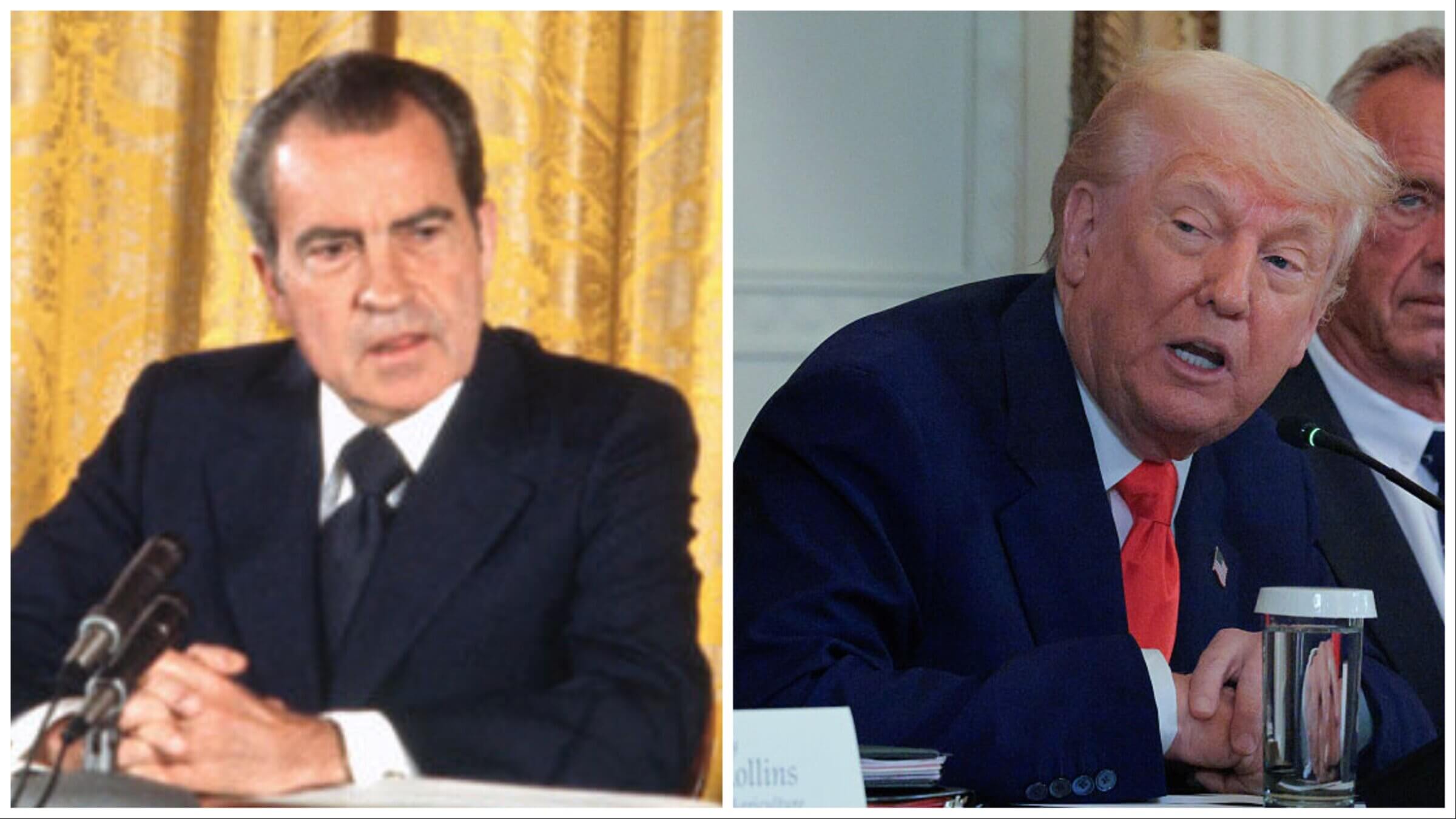Trump fired a commissioner over bad jobs numbers. Nixon targeted a ‘Jewish cabal’ at the same agency
White House personnel chief Fred Malek later apologized for tallying Jewish staffers at the Bureau of Labor Statistics. Trump tapped him in 2017 to lead a prestigious think tank.

(L to R) Former President Richard Nixon on Oct. 3, 1972 and President Donald Trump on May 22. Photo by Ron Sachs/CP/Getty Images and Chip Somodevilla/Getty Images
The last time a president didn’t like the numbers the Bureau of Labor Statistics was crunching, it took a dark antisemitic turn.
President Donald Trump fired Erika McEntarfer, the Bureau of Labor Statistics chief, on Friday, accusing her of inflating job numbers to sway the 2024 presidential election. The firing came the same day that BLS released data showing poor job growth under Trump.
McEntarfer’s removal shocked Washington and made headlines about yet another instance of Trump co-opting what once was an independent agency to his agenda, fact-based or not. Trump’s first term BLS boss, William Beach, said the firing “sets a dangerous precedent and undermines the statistical mission of the Bureau.”
The firing also stirred memories of President Richard Nixon’s push to remove Jewish staffers from key roles at the same agency over unfounded suspicions of bias.
The Bureau of Labor Statistics operates independently to produce nonpartisan data on employment and other key economic indicators.
In the summer of 1971, amid growing frustration with what he believed were politically motivated leaks and bad employment statistics, Nixon complained to his staff about what he called a “Jewish cabal” in government working against him. He instructed his staff to record the number of Jews working at BLS and to demote them, according to released transcripts of the Nixon White House tapes.
White House personnel chief Fred Malek was tasked with the job and submitted a list of employees with Jewish-sounding surnames. Three of the 13 identified were reassigned to different positions within the bureau. Journalist Timothy Noah later called it “the last recorded act of official antisemitism by the United States government” in a detailed 2007 article for Slate.
Malek, who died in 2019, admitted his role after veteran journalists Bob Woodward and Carl Bernstein exposed the tapes in their 1976 book The Final Days.
“I want a look at any sensitive areas around where Jews are involved,” Nixon said in that conversation. “See, the Jews are all through the government, and we have got to get in those areas. We’ve got to get a man in charge who is not Jewish to control the Jewish.”
In a 1988 interview with The Washington Post, Malek expressed regret and called Nixon’s belief in a Jewish cabal “ridiculous” and “nonsense.”
Peter Henle and Harold Goldstein, two of the demoted staffers, told the Forward in 2005 that they didn’t hold a grudge against Malek.
“He was in there working for a rotten boss, and the rotten boss asked him to do a nasty job, and he did,” Goldstein said.
In 2014, the Anti-Defamation League presented Malek with the ADL Achievement Award, a measure of the redemption he had long sought for the Nixon episode.
Trump, in his first term, appointed Malek chair of the Woodrow Wilson International Center for Scholars, a prestigious think tank that the president has dismantled in his second term.
Abe Foxman, the former ADL chief, drew a parallel between Trump’s removal of the BLS commissioner and Nixon’s attempted purge. He said that while Nixon was motivated by antisemitism, both he and Trump were “animated by protecting self-interest and image.”
Foxman, who in 2020 broke his tradition of not endorsing political candidates to back Joe Biden, added that Nixon’s behavior was worse “because he blamed not an individual but a class — the Jews — and reinforced antisemitism from the White House.”














